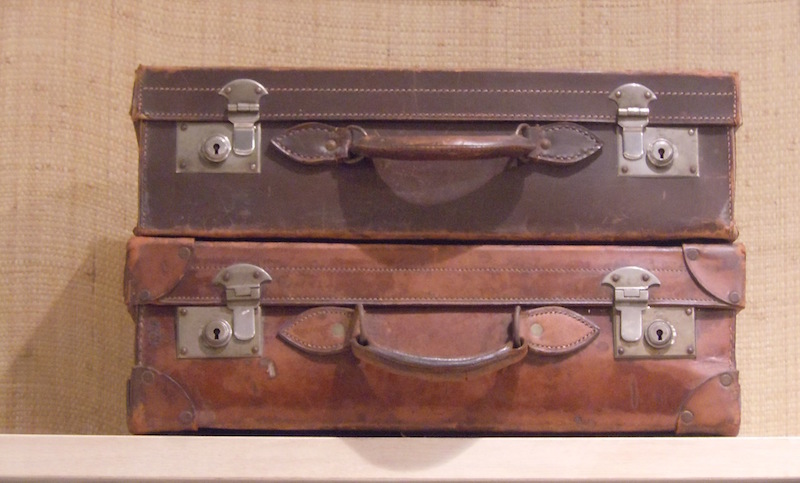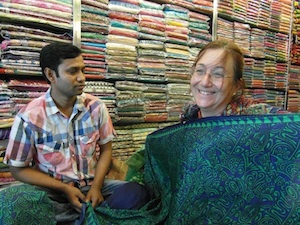
You all know our beloved friend Paola Fornari by now. She has moved regularly all over the world since she was a child. She tells her story in the beautiful blog Stories by Paola. In this article about moving to a new country, Paola reflects on all she has learned in her twenty-four relocations, and gives us useful tips and insight to face our own. Thank you, Paola!
Moving to a new country is up there pretty close to a death in the family and divorce in terms of stress, according to the experts. And it doesn’t get easier with experience. So you wonder, if it’s going to be stressful anyway, do I simply have to accept that and go with the flow, or is there something I can do to make it easier?
In my experience, awareness, preparation and attitude are the three key factors which can improve things.
 If you aware of what is going to happen to you, to your psyche, to your soul, and recognise the symptoms when they occur, you will at least know that what you are going through is normal, and not terminal. It’s temporary.
If you aware of what is going to happen to you, to your psyche, to your soul, and recognise the symptoms when they occur, you will at least know that what you are going through is normal, and not terminal. It’s temporary.
According to studies by Dr Paul Pedersen of Syracuse University, culture shock often follows a pattern. (Please bear in mind that time frames vary from person to person: those mentioned below are the most ‘typical’).
You arrive in your host country on a high: everything is new and exciting; you are surrounded by unfamiliar smells and tastes and sounds and colours. There is so much to discover. This ‘honeymoon’ phase, typically, lasts about three months. Some people unfortunately never experience the ‘honeymoon’ phase and are unhappy from the start.
After this, reality sets in with the ‘negotiation’ phase. Euphoria is replaced by anxiety, frustration and anger, as you begin to miss people, and places, and focus on what’s ‘wrong’ with your new home. And although the sun may be shining, the people are friendly, and in material terms, you lack nothing, you can sink into deep depression. This often hits after about six months, and might last about three months.
 Next comes the ‘adjustment’ phase. Things begin to make sense, and you get a grip on yourself and make a conscious decision to adopt a positive attitude, adapt, and integrate. You develop new interests, and get into routines. Sadly, some people never manage to get beyond the ‘negotiation’ phase and spend the entire duration of their posting very miserable. This is the case with some trailing spouses who were reluctant to move in the first place.
Next comes the ‘adjustment’ phase. Things begin to make sense, and you get a grip on yourself and make a conscious decision to adopt a positive attitude, adapt, and integrate. You develop new interests, and get into routines. Sadly, some people never manage to get beyond the ‘negotiation’ phase and spend the entire duration of their posting very miserable. This is the case with some trailing spouses who were reluctant to move in the first place.
And finally, the ‘mastery’ phase sets in. This is when you feel you understand the culture surrounding you and fully embrace it. And often, when it’s time to pack up and go, you’d rather stay.
So what can you do to prepare for your new life? Knowing as much as possible about what awaits you certainly helps. Read novels by local authors, guides, history books, post reports, blogs. Try to meet some people from your host country before you go. Familiarise yourself with any cultural sensitivities there may be. Learn a few words of the language: simply ‘hello’ and ‘thank you’ go a very long way, and demonstrate your respect and enthusiasm. Listen to songs. If possible, visit the country before your move, look around the shops, explore the area where you will live.
 Apart from integrating into your new culture, it is important to stay in touch with what is familiar to you. If you are a ‘trailing spouse’, investigate work possibilities. Find out where you will be able to pursue your hobbies. Take with you ‘comforters’: pictures, favourite teabags, stocks of materials for your hobbies, anything that gives you pleasure.
Apart from integrating into your new culture, it is important to stay in touch with what is familiar to you. If you are a ‘trailing spouse’, investigate work possibilities. Find out where you will be able to pursue your hobbies. Take with you ‘comforters’: pictures, favourite teabags, stocks of materials for your hobbies, anything that gives you pleasure.
When you arrive, try to make friends with some local people. Quickly sign up for whatever activities you enjoy. And take up new hobbies too. Yoga and meditation are an excellent source of balance and calm. When anxiety hits, remember that you are not alone: find expats who have reached the ‘mastery’ phase and talk to them, honestly and openly, about your feelings. You will find that they can empathise.
And write. Write your feelings, your observations, write anything at all. Apart from the beneficial value of ‘downloading,‘ your notebook will be an excellent source of material and memories down the line.
Finally, there is the question of attitude. And to illustrate this, here is a story:
A woman was travelling along a dusty track from A to B. Along the way, she met a man, resting in the shade of a tree.
‘Good day, sir,’ she said. ‘I am moving to B. Do you know the place? What is it like?’
The man stroked his chin. ‘Hmm, I see you are travelling from A. How did you find A?’
‘Oh, A was wonderful,’ the woman replied. ‘I loved it.’
‘Well, B is wonderful too,’ the man replied. The woman went happily on her way.
Half an hour later, another woman came along the track. She stopped to talk to the man.
‘Good day, sir,’ she said. ‘I am moving to B. Do you know the place? What is it like?’
The man stroked his chin. ‘Hmm, I see you are travelling from A. How did you find A?’
‘Oh, A was awful,’ the woman replied. ‘I hated it.’
‘Well, B is awful too,’ the man replied. And the woman went miserably on her way.




